

Runners pass Tian'anmen Square in the men's marathon at the 15th IAAF World Championships, held in Beijing on Saturday. WEI XIAOHAO/CHINA DAILY
Two months before the 10-kilometer mini-marathon began at the 2015 World Athletics Championships in Beijing on Saturday, the competition had already started for amateur runner Li Zhiqiang from Qingdao, Shandong province.
Demand for the 220 amateur places was so high that Li had to compete against almost 2,000 other runners from Shandong who had also filed applications to be among the 10,000 competitors in the race, which was introduced as a sub-event of the full 42.195-km event for the first time in the championship's history.
A pre-registration ballot saw Li overcome the odds to become one of the lucky amateurs who competed against world-famous professionals at the event, which is being held in China for the first time.
"It's a once-in-a-lifetime honor to run the same course (a shorter distance) as top professional runners from around the world at this prestigious event. It's a dream come true for any amateur runner," said Li, a bank employee who has completed nine full marathons since 2013.
It's not just prestigious events, either. Distance running is a fast-growing activity in China, and domestic races are attracting an ever-rising number of competitors.
Last year, one of China's oldest marathon races, the Hangzhou International Marathon, first held in the capital of Zhejiang province in 1987, filled its 30,000-competitor list within seven hours of registration opening, according to the operator and promoter, Wisdom Sports Group, a Hong Kong-listed company.
Wisdom has announced that the field for another of its events, the Guangzhou Marathon in Guangdong province, scheduled for December, will be raised to 30,000 from 20,000, after heavy traffic caused the organizer's website to crash several times during registration last year.
Easily accessible
Marathons have long been popular around the world, but the high level of participation in China's urban areas is a relatively recent occurrence. Nevertheless, the event has quickly emerged as an ideal platform for the promotion of host cities and as a money spinner for the organizers and sponsors.
The low access threshold and the growing number of marathons has seen an influx of new participants, which has boosted tourism and local revenues, according to Ren Wen, Wisdom's chairwoman.
"No other sport has a lower entry requirement than running. All you need is a pair of running shoes and you can go hit the road, regardless of age or gender," said Ren, who founded the company in 2001.
"That's why we remain committed to organizing, promoting and marketing marathons and related races as the foundation of our sporting venture. The races attract a massive number of participants, which is the key asset of this fledgling industry."
Yu Jia, a well-known basketball commentator at China Central Television and a dedicated runner, predicted that the marathon will become China's No 1 sporting event within five years, despite the current overwhelming popularity of basketball and soccer.
"It's easy access, low-cost and facility free. All these factors make running a leisure pursuit with huge public appeal," said Yu, who has completed six major marathons, including Tokyo, Boston, London and Berlin, in the past two years.
The number of running events has surged in China as a result of growing public awareness of healthy lifestyles and local governments' desire for publicity that will attract tourists.
By Aug 20, 102 events, including full and half-marathons plus mini-runs, had been arranged for this year's calendar, and the scope of activity had widened from major urban centers to remoter areas, such as Lhasa, the capital of the Tibet autonomous region, according to a recent update released by the Chinese Athletics Association. In 2013, there were just 36 events.
It's still not enough, though, according to CCA officials, such as Wang Dawei, the vice-president, who said about 800 full marathons were held in the United States last year, and an estimated 550,000 runners finished the races, whereas the figure in China was only 80,000.
"(Marathons) have great momentum, but the potential remains largely untapped, given China's huge population," he said.
Ren, of Wisdom, which arranges and markets marathons in five cities, echoed Wang's opinion, saying the scale of investment from profit-hungry sponsors and advertisers could be "phenomenal".
"The opening-up policy in the sports market will definitely give it another boost, and will result in a rise in the number of marathons being founded," she said.
In October, the State Council, the country's highest executive body, issued a blueprint to boost the national sports industry. It ordered the State General Administration of Sport, the national governing body, to reform the current approval procedure for commercial and mass sporting events to allow a larger number of companies and private investors to operate and market events that were previously dominated by government departments and State-run enterprises.
 |
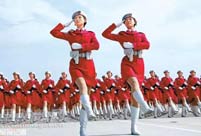 In pics: album of PLA grand military parades
In pics: album of PLA grand military parades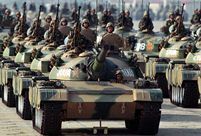 Chinese tanks in National Day Parade
Chinese tanks in National Day Parade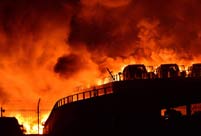 In pics: shocking aftermath of Tianjin blasts
In pics: shocking aftermath of Tianjin blasts
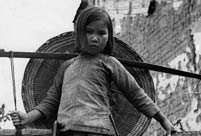 Indomitable Chinese people during WWII
Indomitable Chinese people during WWII
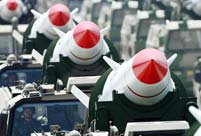 Awesome Chinese missiles
Awesome Chinese missiles Amazing photos of Chinese Air Force in parade
Amazing photos of Chinese Air Force in parade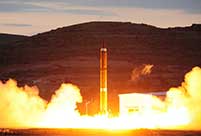 Striking moments when strategic missiles are launched
Striking moments when strategic missiles are launched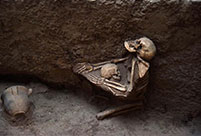 Shocking scenes found in 4000-year-old earthquake relic
Shocking scenes found in 4000-year-old earthquake relic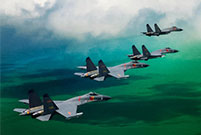 Stunning moments of Chinese fighter jets
Stunning moments of Chinese fighter jets Pulling on the river
Pulling on the river Korean tensions won’t take China hostage
Korean tensions won’t take China hostage Are we efficient enough?
Are we efficient enough? ‘Sensitive’ arms exhibited in parade rehearsal
‘Sensitive’ arms exhibited in parade rehearsalDay|Week